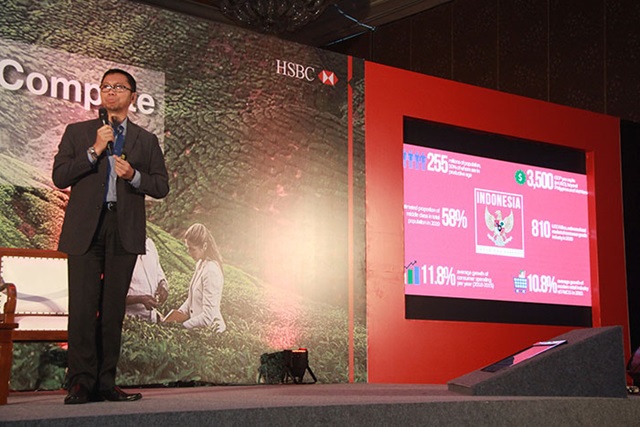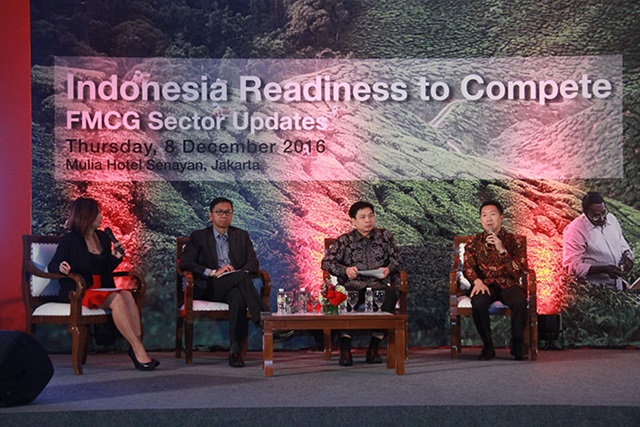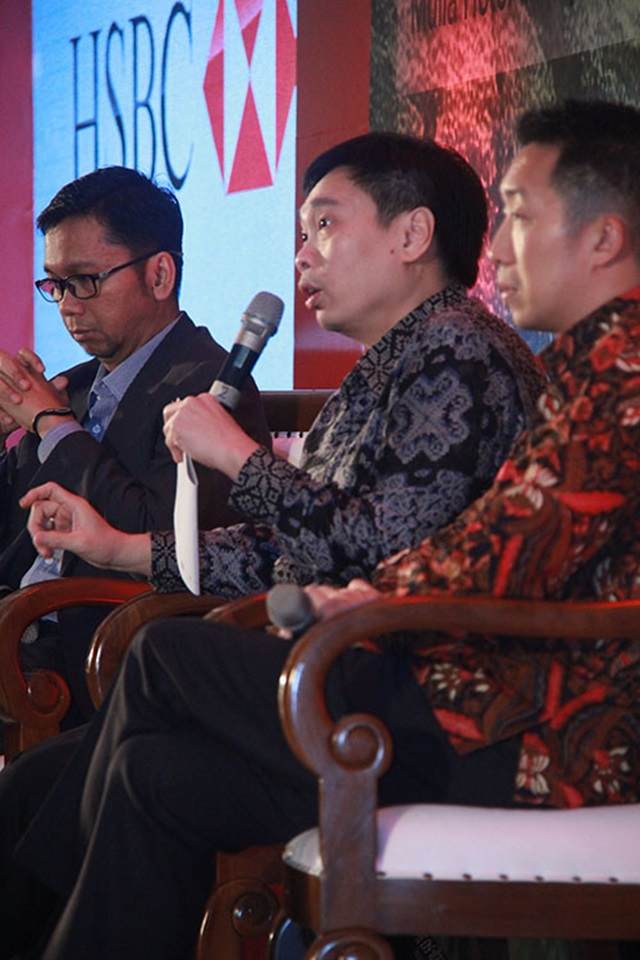- Article

- Managing Cash Flow
- Enable Growth
FMCG Industry in Indonesia: Opportunities and Challenges
Indonesia’s Fast Moving Consumer Goods (FMCG) industry is considered to be one of the most attractive industries with over USD 10 billion in sales in line with the growth of the country’s middle class. Long considered to be one of the driving factors of the Indonesian economy, the figures are showing a promising future. With over 255 million people, half of whom are in a productive age, the positive trend is expected to continue as the average growth of spending per year reached 11.8 per cent in 2010-2015 and the average growth of modern FMCG retail industry reached 10.8 per cent in 2015. The positive growth also expands to regions outside of Java as well as rural areas with the increasing demand for effective logistics in these areas. Despite the ever positive trend, there are some variations in year-on-year growth of certain products, with food products scoring 38 per cent of growth as of August 2016 compared to 12 per cent of home care products. All in all, FMCG products successfully contribute 18.5 per cent to national GDP in 2016, and this figure is expected to rise to 30 per cent by 2030.
Speaking at HSBC’s FMCG Sector Updates 2016 in Jakarta, Mr. Djatmiko Bris Wicaksono, Director of Bilateral Negotiation, Ministry of Trade of the Republic of Indonesia, highlighted the confidence the government has been portraying in overlooking the Indonesian economy, particularly in FMCG sector. The Ministry of Trade has been laying out the foundation in both domestic and global arenas. In the domestic market, the administration increases the effort in law enforcement to ensure the consumer protection and standard compliance of the trade regulations. The government has also pushed forward the ease of doing business through a series of innovations in fiscal and monetary policy, the infrastructure expansion, and the development of SMEs. In the global market, securing negotiations with trade organizations and bilateral agreements with several countries have been conducted in order to improve the positioning in global FMCG markets.
A similar confidence is also echoed by Mr. Hardianto Atmadja, CEO of GarudaFood Group, who forecasts increasing trends and opportunities in 2017 by targeting the rising middle class with a shifting shopping behavior towards modern channels through convenient stores and e-commerce, despite moderate forecast of the latter by noting baby diaper as the sole product with a significant growth. Mr. Ali Setiawan, Managing Director, Head of Global Markets HSBC Indonesia, also highlights the rising domestic consumption despite moderate growth forecast of 5.2 per cent in 2017. The rising consumption and market growth will be seen in the huge untapped market in rural areas which still show slow growth compared to urban areas. It is also worth noting that the consumer behavior is shifting due to growing concerns over healthy lifestyle and the consumers are making a paradigm shift in food preference and personal/beauty care and personal hygiene. Other opportunities to watch include the growth of digital marketing where new launches and innovation in FMCG products and consumer engagement using digital platforms (social) have the potential to increase the profitability to a greater extend.
The year ahead also poses the challenges to be reckoned with. EU is still suffering from the economic slowdown and the uncertainty and adjustment post-Brexit. The US presidential election, which resulted in the election of Donald Trump, also poses concern as the president-elect vows to raise protectionism, including the withdrawal from the Trans-Pacific Partnership (TPP) agreement. Without USA as the one of the major players of TPP, China is now seen as a potential game changer with its rapid growth; despite the fact that the country is also facing its own problems of the economic slowdown and the escalation of the South China Sea conflict. However, these concerns may also be a blessing in disguise. The lack of confidence in the traditional markets opens up fresh opportunities for the expansion of new markets such as Africa, Middle East, Central Asia, and Latin America. These opportunities may be seized by means of producing and exporting value-added food products (canned food/fruit), penetrating the halal food and cosmetic products, and providing other high quality materials as ingredients for premium beverages product, among others. Hardianto of GarudaFood also welcomes large foreign players into the domestic market by creating co-opetition scheme in order to create new markets.
Indonesia’s FMCG forecast is highlighted by huge potentials and considerable risks. However, in order to venture into the future, it is important to carry on the spirit of openness and competitiveness. The spirit of openness will bring Indonesia deeper into global value chains and deepen engagements with partners at the bilateral, regional, and multilateral or international levels. Meanwhile the spirit of competitiveness will enable the government and the FMCG players to run the economy in an efficient fashion and enable us to compete in both domestic and global markets. Finally, Ali Setiawan of HSBC Indonesia closed the event by highlighting the importance of maintaining the due diligence as we lay out good foundation and good infrastructure to sustain the economy.

DJATMIKO BRIS WITJAKSONO, DIRECTOR OF BILATERAL DISCUSSION, MINISTRY OF TRADE OF THE REPUBLIC OF INDONESIA

PANEL DISCUSSION WITH DJATMIKO BRIS WITJAKSONO (DIRECTOR OF BILATERAL DISCUSSION, MINISTRY OF TRADE OF THE REPUBLIC OF INDONESIA),HARDIANTO ATMADJA (CEO OF GARUDAFOOD GROUP), ALI SETIAWAN (HEAD OF GLOBAL MARKETS HSBC INDONESIA)

PANEL DISCUSSION WITH DJATMIKO BRIS WITJAKSONO (DIRECTOR OF BILATERAL DISCUSSION, MINISTRY OF TRADE OF THE REPUBLIC OF INDONESIA),HARDIANTO ATMADJA (CEO OF GARUDAFOOD GROUP), ALI SETIAWAN (HEAD OF GLOBAL MARKETS HSBC INDONESIA)


